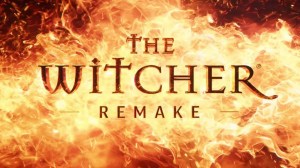Legendary comic book artist George Pérez, who helped define the look of DC Comics in the 1980s and drew the pivotal Crisis on Infinite Earths crossover event, has passed away. He was 67 years old. Pérez announced his cancer diagnosis in December, revealing that he had stage 3 pancreatic cancer. Pérez told fans at the time that he had elected to forego chemotherapy, which he was told had a low chance of success, and instead spend as much quality time as he could with his family, friends, and fans. In the time since he announced his illness, Pérez has been photographed at the DC offices, and scheduled some signing and meet-and-greet events with fans.
Videos by ComicBook.com
“On November 29th, I received confirmation that, after undergoing surgery for a blockage in my liver, I have Stage 3 Pancreatic Cancer,” Pérez told fans via Facebook. “It is surgically inoperable, and my estimated life expectancy is between 6 months to a year. I have been given the option of chemotherapy and/or radiation therapy, but after weighing all the variables and assessing just how much of my remaining days would be eaten up by doctor visits, treatments, hospital stays, and dealing with the often stressful and frustrating bureaucracy of the medical system, I’ve opted to just let nature take its course and I will enjoy whatever time I have left as fully as possibly with my beautiful wife of over 40 years, my family, friends, and my fans.”
In 2019, Pérez announced his retirement from comic books, citing failing eyesight and other health issues. He continued to make convention appearances (where possible, given the Covid-19 pandemic), and to take on commissions and do signings.
Born on June 9, 1954, Pérez is one of only a handful of artists to have historically meaningful runs as the penciller on both Marvel’s The Avengers and DC’s Justice League of America. He began his comics career as an assistant to Fantastic Four artist Rich Buckler in the early 1970s, and would go on to make his debut as an artist in a 1974 issue of Marvel’s Astonishing Tales, in which he drew a two-page parody of Deathlok, a character created by Buckler.
It didn’t take long for Pérez to become a staple at Marvel, drawing Sons of the Tiger, a backup feature in writer Bill Mantlo’s The Deadly Hands of Kung-Fu. The two created the White Tiger together, Marvel’s first Puerto Rican superhero, and the artist’s popularity soon pushed him to greater heights.
Pérez became a household name for comic book fans when he joined the creative team of The Avengers in February 1978. During his time on Marvel’s premiere team-up title, Pérez co-created characters like Henry Peter Gyrich and the Taskmaster.
A year later, in 1979, he would draw a Fantastic Four Annual, which would jumpstart the key creative partnership of his long career. In the story “Cat’s-Paw,” Pérez collaborated for the first time with veteran writer and editor Marv Wolfman.
Pérez was not exclusive to Marvel, and in 1980, began working for DC Comics, as well. Pérez wanted a shot at Justice League of America, which came following the death of longtime artist Dick Dillin. While he was drawing the Justice League’s adventures, though, he and Wolfman began collaborating on The New Teen Titans, a reinvention of Bob Haney’s Silver Age team of sidekicks which would change everything. Among other things, Pérez and Wolfman would introduce the character of Deathstroke the Terminator, and tell the story of The Judas Contract, widely regarded one of the best mainstream superhero stories ever.
The New Teen Titans would consume much of the next four years of Pérez’s career, until he took a leave of absence in 1985 to work with Wolfman in Crisis on Infinite Earths, a massive, line-wide crossover event which starred every character, and every alternate reality, DC owned. In it, a being called the Anti-Monitor began tearing through the multiverse, destroying universes and bringing about the end of hundreds of characters. In the end, the Crisis crossover would leave the DC Universe with a single, unified Earth and a complex history that included as many characters as the creators intended to use. That status quo would remain for about 20 years.
In addition to Crisis itself, Pérez was involved with the final canon appearance of the pre-Crisis version of Superman, inking Curt Swan’s pencils on Alan Moore’s beloved story Whatever Happened to the Man of Tomorrow?.
In 1987, Pérez worked with writers Greg Potter and Len Wein to reinvent Wonder Woman for the post-Crisis era. As plotter and artist, Pérez created a stronger bond between Wonder Woman and the gods of Greek mythology. His take would become the definitive Wonder Woman run, with every subsequent reinvention of her story leaning heavily on Pérez’s influence.
Pérez would also periodically work on the Superman titles, with one notable contribution being his inks over John Byrne’s pencils in the Superman/Wonder Woman story in Action Comics #600. When Byrne, Wolfman, Jerry Ordway, and other big names of the 1980s took on a three-times-a-month Superman publishing schedule, Pérez took on Action Comics for a while, but ultimately had to leave it behind when he found doing both Superman and Wonder Woman’s flagship titles to be too time-consuming.
In 1991, Pérez masterminded the War of the Gods storyline in Wonder Woman, which DC expanded out to be a line-wide crossover. After numerous conflicts with editorial, Pérez expressed an interest in moving back to Marvel, and the opportunity came up – with The Infinity Gauntlet. Unfortunately, he only finished four issues of that series before running into deadline issues. Marvel replaced him on the last two issues with artist Ron Lim, although Pérez remained on to ink the covers.
For a while in the early ’90s, Pérez struggled to find his next big thing. He worked for Malibu Comics, Tekno Comix, and Topps Comics (where he inked the comics adaptation of Steven Spielberg’s Jurassic Park, which was written by Walter Simonson and drawn by Gil Kane).
His next two big superhero projects would be The Incredible Hulk: Future Imperfect with writer Peter David, and Teen Titans. Returning to the title that made him a superstar at DC, Pérez inked Dan Jurgens’s pencils on the mid-’90s relaunch, which introduced a whole new batch of young heroes.
The next period would begin his next career explosion. After a short run on Silver Surfer, Pérez drew a Superman/Silver Surfer crossover comic. Next, he jumped onto the “Heroes Return” reboot of The Avengers, working with star writer Kurt Busiek. That series became a huge bestseller and is credited with elevating The Avengers, who had fallen way, way behind the X-Men as Marvel’s big-ticket comic.
Next, Pérez and Busiek would collaborate on JLA/Avengers, which was the culmination of years of ambition on Pérez ‘s part. The artist was supposed to draw a version of the crossover that DC and Marvel were planning in the 1980s, but creative and commercial differences between the publishers brought the whole thing crashing down. It wasn’t until 2003 that Pérez would finally see the story in print.
In the early 2000s, despite his success with The Avengers, Pérez went back to the indie publishing well, drawing some titles for Gorilla Comics (Image Comics’s short-lived, writer-focused imprint) and CrossGen Comics. His main CrossGen title, Solus, ran for eight issues before ending when the company went bankrupt.
Between 2007 and 2009, Pérez once again returned to DC, drawing The Brave and the Bold with writer Mark Waid and Final Crisis: The Legion of Three Worlds with writer Geoff Johns. Having contributed some art to Johns’s 2005 crossover event Infinite Crisis, this move made Pérez a contributor to each of the three Crisis stories in DC’s acknowledged “trilogy.”
Following DC’s line-wide relaunch The New 52 in 2011, Pérez would serve as the writer and breakdown artist on Superman at its launch, with his work finished by Jesús Merino and Nicola Scott. He also inked over Jurgens’s pencils on Green Arrow during that time, and a previously-unreleased New Teen Titans graphic novel from the 1980s, The New Teen Titans: Games, was released as a deluxe edition hardcover, marking the final major collaboration between Pérez and Wolfman.
His final series before retirement was the creator-owned series Sirens for Boom! Studios. He liked to center stories around powerful women, having also contributed to an issue of Witchblade and released a pair of issues of a creator-owned series titled Crimson Plague for Image Comics in 2000.
Even in his final days, Pérez continued to love comics and fandom. Before a hospital stint in February, he said through his spokseperson, “The strength I have and the will to persevere comes in great part, from all of you. Thank you.”
Our deepest sympathies to Mr. Pérez’s family, friends, fans, and collaborators.








